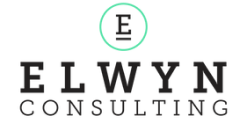Despite the increasing need for data to become more efficient, innovative, profitable, agile and irreplaceable in consumers’ lives, companies continue to struggle to implement a data-driven approach or get organisational wide buy-in for it.
In our experience, six major challenges prevent companies from rolling out or realising the full benefits of a data-driven approach. Could you be stuck in one of them?
1. There is a reluctance to change
While very few people like change, some organisations and teams can be downright against it. As Rick Godwin famously said, “One reason people resist change is because they focus on what they have to give up instead of what they have to gain.”
So the catchphrase “but we’ve always done it this way” lives on. This culture of reluctance and at times outright defiance of progress can prevent companies from trying a different approach and becoming more effective and efficient through the use of data.
2. The approach isn’t being driven from the top
Like any organisational change, developing a data-driven culture needs to start from the top. Yet, many companies don’t have management teams setting the expectations that decision making must be based on evidence gained from data.
Leaders need to lead by example and encourage their team to think differently, ask questions, set a hypothesis, experiment with data and then, most importantly, act on it.
Leaders need to determine what’s more important to their company’s future, a team that gets on with business-as-usual or a team willing to follow their curiosity and innovate for greater business outcomes.
3. Ineffective processes and a lack of skills
There’s no denying that a data-driven approach requires a unique skillset and way of thinking. For companies who don’t have a team wired this way, it can be hard for them to fathom the benefit of a data-driven approach or the rollout of one through their organisation.
With skills and knowledge lacking and ineffective or inefficient business processes that don’t facilitate decisions made on data, it can all seem “too hard”. But the truth is, organisations like this can see the biggest benefit from a data-driven approach. With improved processes, staff training, more informed decision-making, and greater transparency through the organisation, they can often achieve exponential growth.
4. Legacy data environments
As a by-product of a culture reluctant to change, some organisations (and dare we say it sectors) can also be plagued by legacy data. Legacy data refers to essential business information that is contained in an out-of-date or obsolete computer system (either hardware or software) that is difficult to get rid of because of its wide use or essential status within the company.
As a result of these archaic systems, data accuracy is compromised, leaving organisations to act on outdated or incomplete data. In these situations, the importance of up-to-date information needs to be prioritised over the perceived importance of the legacy system.
5. Drowning in data
Perhaps one of the biggest reasons companies struggle is the sheer magnitude of information available. When you’re not clear on your objectives, setting the proper boundaries or measuring the right metrics, you can, very quickly, fall down the rabbit hole and find yourself in a confusing and overwhelming wonderland of data.
6. Inaccessible data
Widespread implementation, whether it’s a system, process or approach, relies on it being accessible and easy for users to find (and use). The change needs to fit into your team’s existing workflows and make life easier, not harder.
Unfortunately, though, implementing a data-driven approach is not integrated seamlessly for some organisations, resulting in resistance to implementation. Organisations need to communicate the ‘why’ behind the new approach and remove barriers to make it easier for users.
So, what is the solution?
To increase buy-in for a data-driven approach, we recommend starting where there is a critical business need. Where there is a problem, the boundaries of data collection are specific, and with a pain point already felt, any improvement can be perceived as a win.
The credibility you will gain from this win can then be leveraged for other high-impact areas to develop case studies and gain momentum and buy-in for a more widespread data-driven approach.
Need help getting buy-in for a data-driven approach in your company? Contact us today on 1300 905 389.





